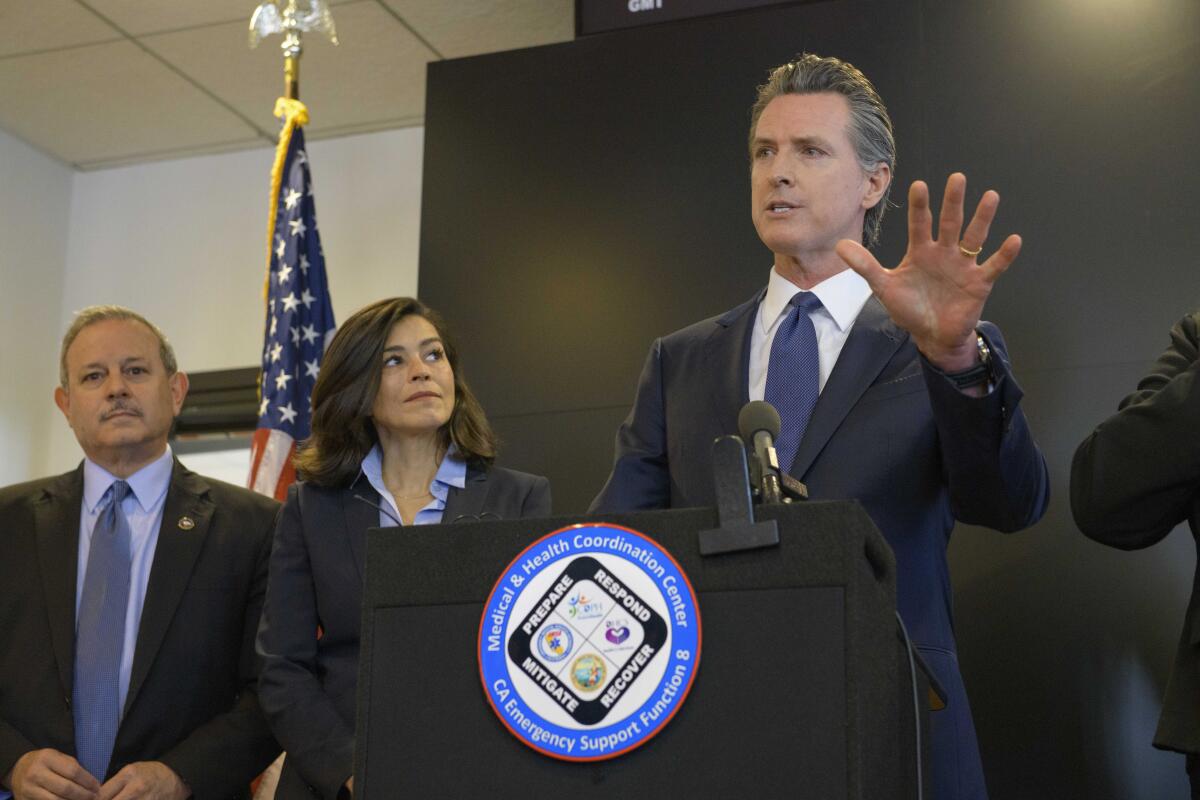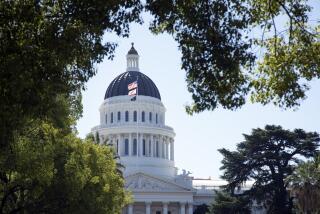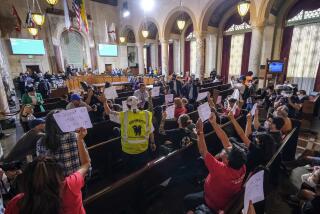Some California cities suspend public records requests because of coronavirus

- Share via
Some local governments in California are halting their responses to public records requests as they deal with staffing restrictions caused by the coronavirus outbreak.
The city of Fresno suspended “immediate responses” to public records requests on Tuesday after the city declared a state of emergency, according to an email from the city attorney’s office. The city will resume responding to requests once the emergency declaration ends.
In the Bay Area, the city of San Leandro is closed to the public and only staffing “essential employees” because of a shelter-in-place order from Alameda County, according to an email from the city manager’s office. The city will need an additional 45 days to respond to records requests after the order is lifted, the email said.
And the city clerk’s office in Fremont told a journalist this week it would not be able to accept public records requests until its offices reopened following an emergency declaration there.
David Snyder, executive director of the First Amendment Coalition, said he had also heard of similar issues in the Northern California cities of Los Altos and Martinez.
He said that emergency declarations at the state and local levels made no mention of allowing governments to ignore California’s open records law.
“While I’m totally sympathetic to staffing and other issues cities may now be facing, and understand that slower responses to public records requests may be required, the fact remains that the California Public Records Act is still the law of the land,” Snyder said.
The coronavirus emergency makes the state’s open records law “more important now than it has been in a very long time,” he said.
“The public has a need and a right to see and understand the inner workings of their government, especially when that government is taking the extreme measures it is now taking,” Snyder said. “Government power is at its apex in a crisis, and so is the risk that the government will abuse that power. Transparency provides a crucial check on that possibility.”
Most local governments in the state are still providing records and updates to requests from the public and media, Snyder said.
The Los Angeles Police Department is accepting and processing requests as usual, according to spokesman Josh Rubenstein.
More to Read
Sign up for Essential California
The most important California stories and recommendations in your inbox every morning.
You may occasionally receive promotional content from the Los Angeles Times.














